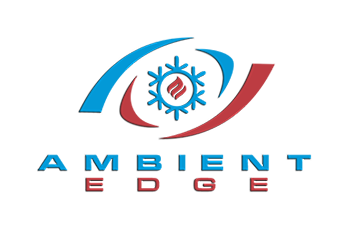
Most heating systems will last many years with proper maintenance, so you will likely purchase your first new one. For most homeowners, heating equipment will be one of the largest expenses they have, so you should research and choose your new heater carefully. Heaters are a large investment that your family will rely on to stay comfortable for many years to come.
The right heating system can help lower your utility bill and save you money for several years. When you are ready to purchase a heater, the heating and air conditioning repair, service, and installation professionals at Ambient Edge can help install your system, if you have any questions about which system may be best for your home, feel free to reach out to us. The following are four questions you should ask when purchasing a new heater.
How Large Should the Heater Be?
Many times, a contractor will replace an old heater with a newer unit with the same capacity. Other times, they will make a rough estimate on the best size furnace for your home and suggest that. Both of these methods can make the heater too large, which can waste energy and cost you more money. Or it can make the heater too small, which will not heat your home properly.
Since a heater is such a large investment, you will want to choose the correct size. A heating system that is too small or too big will often break down much sooner than a heater of the correct size. So, what is the solution to choosing the correct size?
An HVAC technician at Ambient Edge can perform a Manual J load calculation. This standard industry formula used by HVAC technicians uses a variety of details, including the amount of shade surrounding your home, the home’s square footage, the building material types, the amount of insulation, the number of windows, and the number of occupants. Our heating professionals will fully inspect your house to obtain an accurate Manual J load calculation.
What Types of Heaters Are Available?
Most heating systems available today are a combo heating and cooling system split with a furnace, a condenser, and a coil that sits on the surface of the heater. Combo systems provide homeowners with the same cooling and heating as split systems. The difference is that the components are combined in one indoor unit. This allows homeowners to enjoy more space in their basement or attic while staying comfortable all year long.
Natural Gas Furnaces
Natural gas furnaces are generally the most cost-effective way to heat your house when temperatures are below freezing. Oil furnaces can be a powerful heating source but can pollute indoor air and take up much more space than natural gas furnaces. A good option for older homes that do not have gas lines would be propane or oil furnaces.
An electric furnace is more efficient than propane, oil, or natural gas, but the cost of producing electric heat is much more expensive. Economically, electric heat pumps are better because heat is transferred rather than produced. Electric heat pumps double as an AC unit, acting as an air conditioner during the summer and a heater in the winter.
How Is Efficiency Measured?
Heating units come from the manufacturer with the goal of burning fuel efficiently and using as little energy as possible to run the fans or blowers that circulate the heat. Fuel efficiency for furnaces has a standard measurement called an Annual Fuel Utilization Efficiency or AFUE rating. This rating shows the percentage of fossil fuels that are converted to annual usable heat.
AFUE ratings can range between 80 and 98.5%. Any new heating system must be labeled with an AFUE rating along with the heater’s estimated annual operating cost under various conditions. These labels make comparison shopping much easier for consumers.
A heating system with a higher AFUE rating will cost more upfront but can lower your utility bills, making the investment worthwhile. In the long run, purchasing the most efficient heating system you can afford is typically the most economical choice. Older heating systems eventually become less efficient, so you should have them inspected annually by a professional and maintain proper maintenance routines.
What Are the Best HVAC Accessories?
Humidifiers use a humidistat, which controls the humidity in your house, similar to a thermostat that controls the temperature. Heaters can create indoor air that is too dry in fall and winter, which can cause static electricity, cracking hardwood floors, sore throat, dry skin, frequent flu or cold symptoms, and aggravate allergies or asthma. A professional can install a whole-home humidifier within the home’s ductwork, or a less expensive portable model can be used in a few rooms at a time.
Ultraviolet or UV lamps can kill dust mites, mold, bacteria, viruses, and more by damaging their DNA. UV lamps that sterilize the air fit directly inside the ductwork and only turn on when the heater’s blower motor is running, so they are very efficient. These UV lamps prevent the growth of mold, but dead mold spores can still cause asthma and make allergies worse, so if anyone in your home has respiratory issues, you should also install an air purifier.
Air purifiers or air cleaners capture the contaminants using high-quality air filters. Devices with the highest Minimum Efficiency Reporting Value or MERV can even remove some viruses and bacteria. You have the option between a portable or whole-home unit, though less expensive portable air purifiers can create much more noise than a whole-home unit.
Maintain Your Investment with Ambient Edge
Even brand-new heating systems require regular maintenance. After installation, air filters should be checked monthly and replaced when dirty or every three months. An HVAC professional should inspect the heater annually to keep indoor air quality high, ensure your family stays comfortable, and prevent inconvenient breakdowns.
Neglecting regular maintenance of your new heater could shorten the system’s life. Ambient Edge has HVAC professionals ready to help answer any of your heating questions and to provide maintenance for your new system. Contact us today to schedule your installation using our online form.



